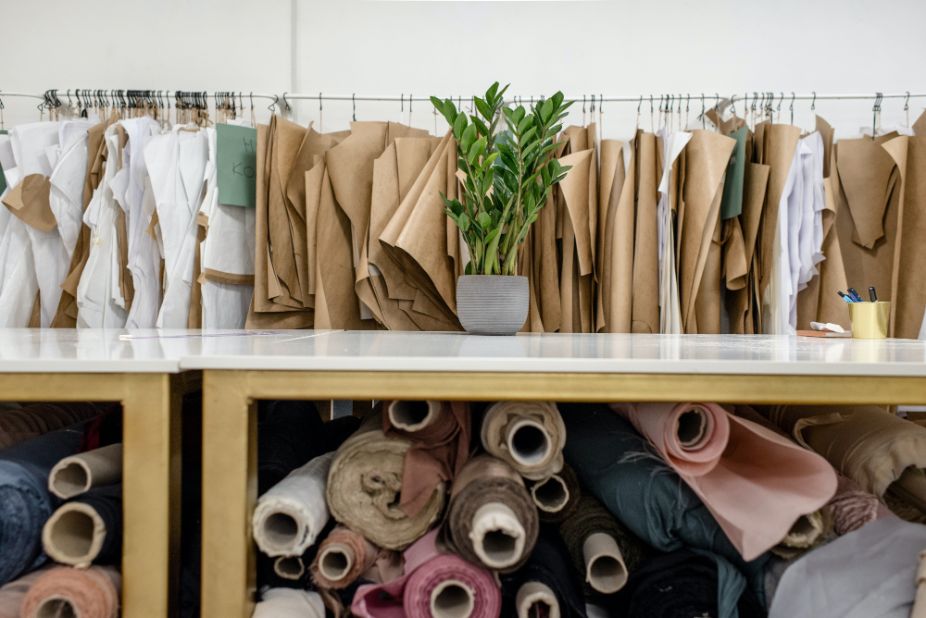Are you trying to find a craft job? Learn what qualifications and experience you’ll need.
Consider becoming a fashion designer if you’re looking for a creative job and have a passion for clothing or accessories. You can work for reputable design studios and apparel companies or independently, but this profession typically requires technical training and professional experience.
The function of a fashion designer, as well as the education and training required to pursue this career, are covered in this article.
What is a Fashion Designer?
A fashion designer makes clothes and accessories. These individuals frequently participate in each stage of the process, from conceptualizing designs to selecting fabrics to supervise the creation of individual garments or collections.
Fashion designers can work independently for their own fashion line or independently for clothing manufacturers and design firms. They may also specialize in creating apparel or accessories for particular clients, such as men or women, or in a particular look, such as sportswear, footwear, or haute couture.
What Do Fashion Designers Do?
Depending on their qualifications, reputation, and experience, fashion designers hold a variety of jobs. It is a career path with countless options to explore, from the smallest independent boutiques to global retail chains and all the way up to the most well-known fashion houses in the world.
Responsibilities vary in accordance with the designer’s position and employer, though typical daily duties may include:
- Brainstorming and sketching initial designs
- Working with advanced computer-aided design (CAD) software
- Selecting fabrics in accordance with requirements
- Producing mood boards and creating prototypes
- Supervision of garment production
- Quality control
- Meeting clients to discuss orders
- Project budget management and comprehensive administration
- Showcasing completed work and portfolio development
- Extensive marketing and PR

How to Become a Fashion Designer?
If you want to work as a fashion designer, you can use the following steps as guidance for pursuing this career path:
Pursue Higher Education
You can pursue a career as a fashion designer by earning a foundation degree, higher national diploma, or bachelor’s degree. To learn about the typical educational requirements established by employers in this sector, you can look up job openings for fashion designers.
Look for programs that offer coursework related to fashion design and the industry. Some colleges and universities are British Fashion Council members, which can put you in touch with helpful resources. Examples of relevant subject areas to study include:
- Fashion
- Fashion design
- Fashion marketing
- Fashion management
- Art and design
- Textiles and textile design
- Graphic design
You can acquire the technical and design skills required for this position by pursuing a degree or other higher education. You could learn about pattern-making, design elements, and color theory, for instance.
You can frequently learn about the industry’s history as well as the most recent trends and procedures through these programs. Along with the design, you can learn about this industry’s various facets, including merchandising, marketing, and manufacturing.
Choose a Speciality
You can select a specialization in some degree programs, such as knitwear, menswear, or womenswear. You might decide to concentrate on textile or accessory design. You can concentrate on the aspect of fashion that most interests you when you have a specialty, and you can gain useful skills that will advance your career.
Your area of expertise can also help you stand out from the competition if you want to launch a fashion business and build a distinctive brand targeted at a particular market.
Develop a Portfolio
You might have to create a portfolio of your work as a requirement for your education. Sketches, technical drawings, or photos of your prototypes, products, or collections may be included in this portfolio. You can also use mood boards to display your sources of inspiration and points of view.
When looking for a job in fashion design, you can show potential employers your portfolio to showcase your skills and professional experience.

Gain Industry Experience
Given the fierce competition for jobs in the fashion industry, you should acquire as much work experience as you can, perhaps through an internship. You will learn more about the position and network with people who can help you later on in finding paid employment.
A Brain for Business
The social media era has made everything online. Therefore, being able to present and market yourself online is necessary for the success of your brand. Having an online portfolio for your designs and creations can be a smart idea.
You can use visual research to create the impression you want your brand to have. Start developing your brand’s image by researching how other companies have conceptualized theirs. There are many social media online courses available, or you can look into how other brands distinguish themselves online and incorporate that information into your own work.
Communication skills with other creatives, pattern cutters, marketers, and buyers are crucial. You must be familiar with your materials, patterns, and textures in order to convey this information to the other members of your team.
See if you can effectively communicate your ideas for your work by using these skills in your own work as you practice them. See if you can maintain their interest by trying this out on your family and friends.
Apply for Full-time Jobs
You can start pursuing a full-time career as a fashion designer after completing your formal education and gaining applicable experience in the fashion industry. You can apply for jobs at design studios, retail clothing businesses, and unaffiliated fashion labels.
When researching job openings, carefully read the job description to make sure you can meet the requirements and customize your application materials, such as your CV, cover letter, and portfolio.
Your accomplishments and relevant experience must be highlighted in these materials to demonstrate your suitability for the position.
